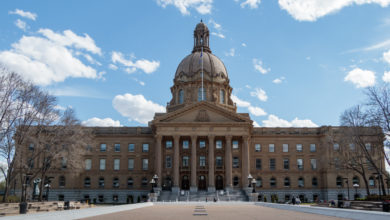 Ab Sch
Ab SchAs prime minister, it’s Justin Trudeau’s job to make decisions that are best for all Canadians. He has to adequately support the entire country to the best of his ability, not pander to specific areas to boost popularity. Yet, this seems to be exactly what Trudeau and the Liberal government are doing with their announcement to exempt home heating oil from the carbon tax for the next three years.
The federal government’s call to end the carbon tax on home heating oil across Canada may seem like it comes out of concern for Canadians. In fact, during his announcement, Trudeau said that the Liberal Party both supports Canadians and fighting climate change. On closer inspection, this is a very political move, and only benefits one section of Canada. Ultimately, this raises questions about whether this is really about supporting Canadians at all.
The introduction of the carbon tax in Atlantic Canada happened in July. Since then, the Liberals have gone down significantly in popularity. This is concerning, as they’ve historically held a fair portion of the ridings in the area. Due to the popularity of home heating oil in Atlantic Canada, it will help the East Coast the most — 30 per cent of Atlantic Canadians still use home heating oil to heat their homes.
A move to boost their popularity isn’t completely out of the question, and it seems that’s exactly what Trudeau has done.
The announcement also contradicts widely-held sentiment from last year. In 2022, the majority of the Liberal Party voted against an exemption of home heating oil from the carbon tax. At that time, the Liberals were still polling above the Conservative Party of Canada (CPC).
The Liberal’s indifference to Canadians’ affordability needs isn’t new, and this extends to the rest of Canada as well. The exemption excludes other sources like natural gas and propane, which is unfair to the rest of Canada, who primarily use other resources to heat their homes. The premiers of five provinces, including Alberta, have penned a letter uniting against the federal government regarding this concern. Other premiers have also weighed in, in support of extending the exemption to their own provinces. They have all been voicing similar concerns — that the exemption is unfair to the rest of Canada.
If Trudeau was more concerned about Canadians’ well-being than he was about saving the Liberal Party’s skin, he would have extended this exemption to all forms of home heating. Instead, the exemption only applies to the portion of Canadians that the Liberals need to win over.
The CPC isn’t contesting this decision alone — the New Democratic Party (NDP) is equally upset. They’ve also been pushing for exemptions and relief for Canadians, with the addition of taxing corporations more heavily. Affordability for Canadians has continually been a concern for the NDP. Now, they’re siding with the CPC. On different ends of the political spectrum, it is rare to see the CPC and NDP siding with each other. This decision must be wholly inadequate for both sides of the opposition to agree.
When Trudeau announced the exemption, he said that it was to help low-income households. However, low-income households exist in other provinces as well. Those in the Maritimes should not be the only ones considered.
Trudeau says the exemption is to give Canadians time to switch away from fuel-based forms of heating. This is in face of rising fuel prices across the country. Therefore, cutting the carbon tax will make fuel more affordable for Canadians using home heating oil in the short-term, with the goal of Canadians eventually switching over to electric home heating pumps.
The average Canadian household will get what they pay in the carbon tax through the climate action incentive (CAIP). The CAIP is available to Canadians in all provinces with federally mandated carbon tax programs, such as Alberta, Saskatchewan, Manitoba, and Ontario. As of July, the CAIP includes Newfoundland and Labrador, Nova Scotia, and Prince Edward Island.
But, the CAIP is a flat amount — each Albertan individual receives $772. As well, the amount you receive doesn’t change based on socioeconomic status. Often, Canadians will ultimately get back more than they paid in the first place. There’s no point in claiming the exemption is for affordability when there isn’t much financial impact on most Canadians anyway. As a result, Trudeau’s claim that the exemption is for affordability doesn’t really hold weight. As most Canadians get their money back through the CAIP, the carbon tax isn’t the financial burden Trudeau is implying it is. There’s no point in cutting the tax as an incentive for other forms of energy. Really, it just exemplifies even more that the Liberals didn’t make this move to help Canadians.
Premiers, the CPC, and the NDP don’t support this move. Ultimately, it won’t have much financial impact on Canadians. So what was the point of the government’s decision?
This truly seems more motivated by the Liberal Party’s desire to stay in power than their concern for Canadians. In the end, this is going to hurt Trudeau and the Liberals more in the long run than it’ll help. At the end of the day, this move is entirely pointless and shows the Liberal Party’s true intentions.




